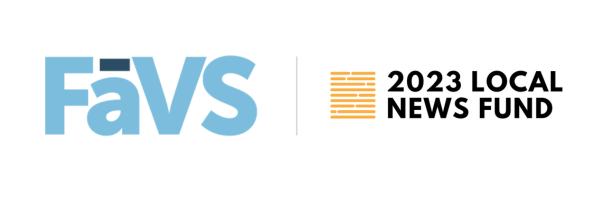Speaker at Gonzaga Wants to Bring Democracy ‘Back from the Brink’
Please consider donating to the FāVS Fund for Social Justice Reporting
News Story by Noah Apprill-Sokol | FāVS News
Harvard professor Danielle Allen has a long family history of politics.
Her paternal grandfather founded one of the first NAACP chapters in Florida, and her great grandmother was the president of the League of Women Voters in Michigan. Her father and aunt both ran for public office in 1992, and even Allen, herself, was once on a ballot, running for governor in Massachusetts.
But, when it comes to the current state of democracy and politics, Allen said she is worried.
“How many of you are worried about our democracy?” asked Allen, joining a crowd largely raising their arms. “How many of you are very worried about our democracy?”
Allen’s question was part of her presentation titled, “Bring Democracy Back from the Brink,” given at the Myrtle Woldson Performing Arts Center Friday evening as part of an event hosted in collaboration between Gonzaga University and the nonprofit Humanities Washington.
Reason for Concern
Allen has been researching democracy and civic engagement, as part of her work as executive director of the Allen Lab for Democracy Renovation at Harvard, and she has been concerned with the lowing number of people who care about democracy, which she said is only about 40% of millennials.
“We are a currently fractured supermajority,” Allen said. “We, the people of the United States, could potentially experience again the idea that we’re a supermajority of us. Not all of us, you’re never gonna get 100%, but a supermajority of all of us are all committed to constitutional democracy. What’s making that hard is various pressures that are keeping us fractured.”
Allen said she wants to create a supermajority — at least 60% of people — who value democracy in the U.S., citing multiple arguments about the lack of competitive elections and diminished transparency in election financing, for why U.S. politics were struggling to foster a healthy democracy.
Call for Change
Allen said she wants institutional political changes, including ranked choice, nonpartisan primary system and an expanded house of representatives, in addition to a greater societal culture centered on values of civic engagement and responsibility.
“If we desire, we who are my age, enough to pass on a stable democracy to rising generations (and) if you, who are younger, desire to have that who experience of empowerment and agency that a healthy democracy can bring, we need to commit to building a supermajority for democracy,” Allen said.
This call to action by Allen resonated with one of the event’s attendees, Timothy Weidel, a GU professor who teaches on social and political philosophy. He said Allen’s encouragement of civic action connected with his personal value of caring for the community.
Connection to Community
Weidel said he and his students believe in the role of community direct action to address social issues and that his students sometimes feel cynical about political institutions’ ability to create change. He said the presentation gave him hope because it gave a possibility for politics to be trusted again.
“As a moral philosopher, I think one of the things fundamental to me is a sense of becoming a better person, that I have a vision of who I want to be and that I’m working to develop as a person over time,” Weidel said. “But, I also recognize that I’m a member of a community and I want that community to hopefully over time move in that direction. I think about this idea of considering what we might owe or be responsible for our community, and I think the presentation did a good job talking about that in a real concrete way.”
Annmarie Caño, former GU Dean of the College of Arts and Sciences, said she also found a spiritual hope in the presentation and that it led her to reflect on her values as a practicing Catholic and a professor teaching at a Jesuit university. She lead the discussion on-stage with Allen.
A Responsibility To Help
Caño said the presentation’s concrete action steps addressed her value of social justice and her understanding that everyone has a responsibility to help others. She said she believes that God gave people a purpose to do good in the world and that politics is a way society can come together.
“I think it’s very important for me to think about how I live my values in a way that serves other people,” Caño said. “This particular talk, I loved the call to action around we all have a responsibility, even if it’s just making a phone call that one on one connection is very important. And in terms of my faith and spirituality, I’m always looking for things that I do to not keep my spirituality inside or private.”
The presentation concluded with Allen answering questions from the audience and also talked about her hope in the recovering of U.S democracy. She said her hope was based on those she witnesses who care and value it amid the turmoil and that the audience was a part of that hope for future change.
“We the people have to become healthy,” Allen said. “The relationships that we have amongst ourselves become the bedrock because we need those in place to through what are going to be some hard times.”








